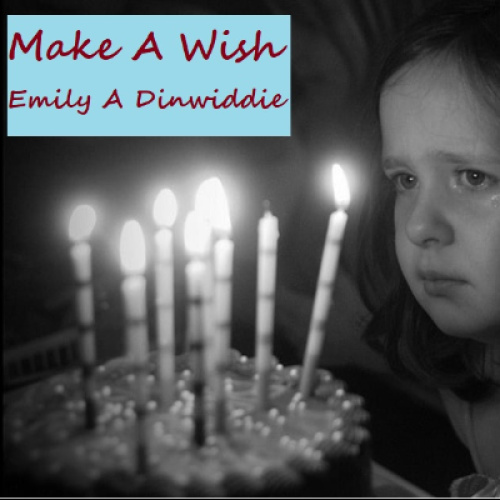So, in secret, I became the best screenwriter I could be. I would go to the library, and she made me call her as soon as I got there. I had to pick up my books and come right back. I would get books on feminine jobs just to cover up the ones I truly wanted. To her, using your imagination for creative writing was a form of lying. She would know - she was one of the best liars I knew. Looking back, I couldn't imagine why she acted the way she did.
Anyway, I'm losing track. Back to what I was saying: it didn't take me long to realize the format needed and how to write storylines. I took my secret library books with me everywhere in my satchel. So, the writing began when I was 15. For school, we had to write poetry and keep journals - any form of creative writing. My screenwriting started with whatever shows were on television at the time: Magnum, P.I., Riptide, Blue Thunder, even Battlestar Galactica - all of my favorites. Scriptwriting came naturally to me. I didn't write in normal manuscript or story format - at least not at the time, and it's still not my natural form of writing. Even now, I'm using speech-to-text because (1) I am driving and (2) that format does not come to me easily.
I befriended two gentlemen in Los Angeles who became my mentors, are now my best friends, and have been for over 30 years. I started writing to them when I was 13, sending them storylines to see what they thought. I guess they thought my work was pretty good because they pitched them to producers, and they got produced - not under my name, because I was under 18 and not allowed to be a member of The Writers Guild. But they would send me back the official working script and a stipend, which they didn't have to. I guess they recognized great talent - in their words.
To pursue professional screenwriting, I wanted to live in Los Angeles, and I did for about a year and a half. Yes, I had taken my scripts and copies with me, but when I returned, I guess I didn't hide them well enough. I didn't keep them with me. In school, in English class, we were told to keep journals - a daily diary filled with poems, which was, of course, creative writing. I must have slipped up somehow, because she found them. Four years' worth of notebooks filled with my poetry, along with the copies of the scripts that I had sent to Los Angeles and had produced, she burned them all in front of me. I didn't speak to her for at least six months, basically treating her like she didn't exist because of the way she treated me and my creative writing. She was the kind of person who thought it was out of the question to watch anything good on television besides the news. The only way I could watch the shows I wrote for, was to buy a small television set, which I kept very well hidden - more so than my stories. I waited until she went to bed at night, usually around 8 p.m. I plugged in a headset and enjoyed Star Trek, Knight Rider, Riptide, and others.
My writing didn't stop there though. My muse could have left permanently, but she returned when Star Trek: Voyager asked for submissions from its viewers for the final episode. I'm happy to report that I wrote one and received a letter back saying it was a properly formatted, beautifully written storyline, but they decided to take it in a different direction. I guess my getting Voyager home was a little too metaphysical, for lack of a better word. But I was happy to have that second-place letter framed and hanging in my offfice as an adult.
As life would have it, I got married, had kids, and my writing took a back seat. But things don't always end the way you think they will. Married life with my first husband came to a close because of emotional abuse, and I dove back into my writing. I was going to do an autobiographical movie about life with my guardian, but it seems that the closer you are to the subject matter, the more it brings up all those emotions you've had to push down for so long, making it nearly impossible. However, for me, it has actually become a source of information, turning into a positive and a source of strength for cross-genre television series.
My muse woke up again in August 2018 and came back in full force. Stories exploded in my mind. It's been hard to capture those stories - I wish there was a pause button for my brain. The only way I can describe it is like watching a show on a screen in my head. At the time, she gave me 15 storylines for my Scottish mystery-drama series, which has since expanded to 30 storylines. She has also given me the ability to write no matter the subject matter. When I started writing again in August, I made a professional account on Twitter and Instagram and followed my favorite shows. By the next day, they were following me. By the end of that week, most of the actors were following me. A couple of them found me on Facebook, friended me, and we talk once or twice a week. They noticed on my biography on Facebook that I'm a screenwriter. So, they asked me what I've written and wanted to see a sample. I requested a signed Non-Disclosure Agreement, which they did sign, then I sent them the first episode of the The Thistle Legacy series I'm writing. They read it and, about 30 minutes later, came back saying how properly formatted it was and how fun a read it was. They look forward to actually seeing it on screen. There's no better feeling than having validation from those in the industry.
One of the actors, also a short film producer working on another project, said they were having an issue with a scene that shouldn't be more than five minutes long but was actually 15 minutes long. He asked if I could take a look at it and see how to fix it. That validates everything I've gone through, showing that my talent is being noticed. So, in some ways, I do feel like a phoenix, literally rising from the ashes of my past works, which were burned, to have my new work noticed. The short story writing prompts I've been given have helped immensely. I could not have imagined taking those short stories, writing them in proper manuscript format, then turning them into scripts and having them accepted by the Carolina Film Community for short film production. It's indescribable how good that makes you feel, knowing what has gone on in the past.
So, I guess wishes do sometimes come true. They may take a little longer than you expected, but if you keep going and keep working towards it, they do come true. My advice to all those who think they can't get something done for one excuse or another: don't you dare give up. It is well worth it, and when it comes true, it is that much sweeter.





